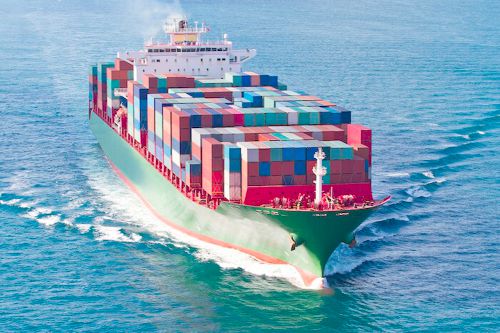Over the last four years, the total volume of goods passing through the country’s two seaports Tema and Takoradi reached 74.5 million tonnes in 2017.
After a historic decline of 13.84 per cent in 2014 (mainly due to the depreciation of the cedi in that year), cargo throughput has enjoyed steady growth in the preceding three years, rising from 17.1 million tonnes in 2015 to 20.3 million tonnes in 2017.
In terms of growth rate, data from the Ghana Shippers’ Authority (GSA) show that cargo throughput rose from 7.2 per cent in 2015 to a record high of almost 16 per cent last year.
This is as a result of the relative improvements in some major macroeconomic indicators of the country.
As is the case with most primary product exporting countries, the volume of export for the period was far lower than the volume of items imported.
Data from the Ghana Shippers’ Authority (GSA) shows that the development was influenced by corresponding increment in imports, exports, and transits.
Goods meant for import for the four year period, ranged from 10.8 million tonnes in 2014 to 14.2 million tonnes in 2017. The authority captured the maritime import trade in four categories, liner, break bulk, dry bulk, and liquid bulk.
The liner import items which constitute over 37 per cent of the total maritime import trade for the four year period included items such as machines and equipment, spare parts, chemicals and pharmaceuticals/ medical supplies, soap, disinfectants/ toiletries, paints and polythene raw materials, vehicles, building materials, textiles and clothing.
Over the period under review, there were increases recorded for all the years except 2016.
Total break bulk import constituted about 15 per cent of total import trade for the period.
This included bagged cargoes such as fertiliser, cement, sugar, rice and flour.
Break bulk import decreased within the period except 2017.
Total dry bulk import items including alumina, grains, cement, coke, clinker, limestone and fertiliser constituted over 23 per cent of total import for the period.
Over the review period there were increases in the dry bulk import in each year except 2015.
Liquid bulk which is up of bitumen, chemicals crude oil, liquefied petroleum gas and other petroleum products formed about 23 per cent of total for the period.
There were increases in all the years except 2017 for the period.
About 86 per cent of total import for the four year period was handled through the Tema port while the Takoradi port handled about 14 per cent.
Directions of import trade
But the direction of maritime trade of Ghana is mostly to and from regions of the world categorised as United Kingdom, North Continent, Mediterranean, Europe, North America, Far East, Africa and others.
Import trade for the period came from these ranges in varying volumes.
It can be seen that maritime liner import trade increased throughout the period except 2016 where it recorded a fall in trade tonnages.
From 3.9 million tonnes in 2014 it increased by 17.5 per cent in 2015 but decreased by 11.9 per cent in 2016.
In 2017, liner import trade recorded a 39 per cent increase to million tonnes.
Liner import
Majority of the liner import trade came from the Far East range recording 45 per cent of the total liner trade for the period.
The range has dominated the liner import trade with Ghana over the period, increasing from 1.7 million tonnes in 2014 to over 2.1 million tonnes in 2015.
In 2016, there was a 16 per cent decrease in liner imports from the Far East to about 1.8 million tonnes. However, 2017 recoded a 39 per cent increase in total liner imports from Far East to over 2.5 million tonnes.
North Continent ranged was with a share of 14 per cent followed by Africa with 13 per cent, Mediterrean Europe and others ranges with six per cent and United Kingdom with three per cent.
Maritime Export
Export for the period, ranged from 4.4 million tonnes in 2014 to 6.1 million tonnes in 20017.
The export trade was categorised in four categories, liner, break bulk, dry bulk, and liquid bulk.
The liner export items which constitute about 29 per cent of the total maritime export trade for the period included items such as cocoa beans, sawn timber/lumber, cotton/cotton seeds, cocoa products, log timber, metal scrap and cashew nut.
The export sector also suffered a negative growth trend for the four year period.
This included bagged cargoes such as fertiliser, cement, sugar, rice, and flour.
Within the four year period break bulk export increased except 2017 which witnessed a marginal decrease.
Dry bulk export items normally consist of bauxite and manganese. Total dry export trade constitute 12.2 million tonnes amounting to 60 per cent for the total dry bulk export trade.
Liquid bulk which is made up of petroleum products and other liquid bulk product had a share of about 319,915 tonnes representing 1.7 per cent of total export.
Transit export
For the period, transit export decreased by six per cent from 25,499 tonnes in 2014 to 23,886 tonnes in 2015.
In 2016, there was an increase of 65 per cent bringing total transit export trade to 39,464 tonnes.
Transit export trade recorded further 40 per cent increase in 2017 to 55,328 tonnes.
source: .graphic.com.gh





